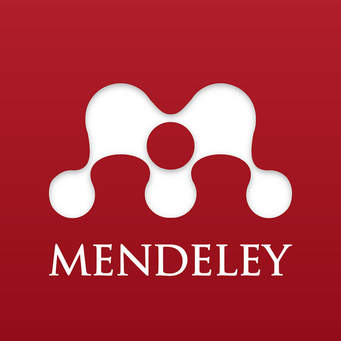PENGARUH EDUKASI GIZI MELALUI MEDIA VIDEO PIRING MAKANKU TERHADAP PENGETAHUAN DAN SIKAP SISWA
Abstract
Background : The problem of nutrition in adolescents, especially the problem of obesity, is one of the focuses of government attention. Nutrition education is one of the most effective ways to increase the knowledge and attitudes of adolescents to maintain their diet so that obesity does not occur.
Purpose : This study purposed to analyze the effectiveness of nutrition education in the video media "Piring Makanku" towards increasing the knowledge and attitudes of students at SMP Negeri 1 Tumijajar.
Methods : The design in this study was a quasi-experiment. The sample in this study amounted to 30 students of class IX through random sampling divided into 2 groups, namely intervention and control . The Mann-Whitney test was used to analyze differences in the effectiveness of nutrition education on students' knowledge and attitudes.
Results : The education provided was able to increase students' knowledge (p = 0.001) and attitudes (p = 0.001) in both the intervention group and the control group.
Conclusion : Nutrition education is effective in increasing students' knowledge and attitudes.
Background : The problem of nutrition in adolescents, especially the problem of obesity, is one of the focuses of government attention. Nutrition education is one of the most effective ways to increase the knowledge and attitudes of adolescents to maintain their diet so that obesity does not occur.
Purpose : This study purposed to analyze the effectiveness of nutrition education in the video media "Piring Makanku" towards increasing the knowledge and attitudes of students at SMP Negeri 1 Tumijajar.
Methods : The design in this study was a quasi-experiment. The sample in this study amounted to 30 students of class IX through random sampling divided into 2 groups, namely intervention and control . The Mann-Whitney test was used to analyze differences in the effectiveness of nutrition education on students' knowledge and attitudes.
Results : The education provided was able to increase students' knowledge (p = 0.001) and attitudes (p = 0.001) in both the intervention group and the control group.
Conclusion : Nutrition education is effective in increasing students' knowledge and attitudes.
ABSTRAK
Latar Belakang : Masalah gizi pada remaja terutama masalah kegemukan menjadi salah satu fokus perhatian pemerintah. Edukasi gizi adalah salah satu cara yang yang efektif dalam meningkatkan pengetahuan dan sikap remaja untuk menjaga pola makan agar tidak terjadi kegemukan.
Tujuan : Penelitian ini bertujuan untuk menganalisis efektifitas edukasi gizi media video “Piring Makanku” terhadap peningkatan pengetahuan dan sikap siswa di SMP Negeri 1 Tumijajar.
Metode : Desain penelitian ini adalah quasi experiment. Sampel pada penelitian ini berjumlah 30 siswa kelas IX dengan cara random sampling yang terbagi 2 kelompok yaitu intervensi dan kontrol. Uji Mann-Whitney digunakan untuk menganalisis perbedaan efektivitas edukasi gizi terhadap pengetahuan dan sikap siswa.
Hasil : Edukasi yang diberikan dapat meningkatkan pengetahuan (p=0,001) dan sikap (p=0,001) siswa baik pada kelompok intervensi dan kelompok kontrol.
Kesimpulan : Pemberian edukasi gizi melalui media video berpengaruh terhadap meningkatan pengetahuan dan sikap siswa.
Full Text:
PDFReferences
Ajie, W., Muzaffar, H. and Chapman-Novakofski, K. (2014) ‘Learning Through Online Videos in a Nutrition Education Intervention for Middle-School Students’, Journal of Nutrition Education and Behavior, 46(4). doi: 10.1016/j.jneb.2014.04.022.
Asmuniati, L., Herawati, D. M. D. and Djais, J. T. B. (2019) ‘The Impact of Nutritional Counseling to Nutritional Knowledge and Energy Intake among Obese Children in Junior High School’, Althea Medical Journal, 6(3), pp. 107–109. doi: 10.15850/amj.v6n3.1645.
Asrori, A. and Salam, A. (2020) ‘Pengaruh Edukasi Gizi Dengan Logbook Remaja Putri Anemia’, Jurnal Gizi Prima, 5(September), pp. 96–102.
Brame, C. J. (2016) ‘Effective educational videos: Principles and guidelines for maximizing student learning from video content’, CBE Life Sciences Education, 15(4), p. es6.1-es6.6. doi: 10.1187/cbe.16-03-0125.
Crites, S. L. and Aikman, S. N. (2005) ‘Impact of nutrition knowledge on food evaluations’, European Journal of Clinical Nutrition, 59(10). doi: 10.1038/sj.ejcn.1602231.
Dattilo, A. M. and Saavedra, J. M. (2020) ‘Nutrition Education: Application of Theory and Strategies during the First 1,000 Days for Healthy Growth’, in. doi: 10.1159/000499544.
Ekayanti, I., Briawan, D. and Destiara, I. (2014) ‘Perbedaan Penggunaan Media Pendidikan Terhadap Perubahan Pengetahuan Dan Sikap Ibu Dalam Sarapan Anak Sekolah Dasar Di Kabupaten Bogor’, Jurnal Gizi dan Pangan, 8(2), p. 109. doi: 10.25182/jgp.2013.8.2.109-114.
Epuru, S. and Shammary, M. U. H. Al (2014) ‘Nutrition Knowledge and its Impact on Food Choices among the students of Saudi Arabia.’, IOSR Journal of Dental and Medical Sciences, 13(1), pp. 68–74. doi: 10.9790/0853-13156874.
Febriana, R., Devi Artanti, G. and Rusilanti, R. (2020) ‘The Effectiveness of Learning Videos for Increasing Knowledge about Women’s Adolescent Nutrition and Reproductive Health’, KnE Social Sciences, 2020, pp. 628–637. doi: 10.18502/kss.v4i14.7920.
Hudson, L. and Viner, R. M. (2012) ‘Obesity in children and adolescents’, BMJ, 345(sep25 2). doi: 10.1136/bmj.e5457.
Irnani, H. and Sinaga, T. (2017) ‘Pengaruh pendidikan gizi terhadap pengetahuan, praktik gizi seimbang dan status gizi pada anak sekolah dasar’, Jurnal Gizi Indonesia (The Indonesian Journal of Nutrition), 6(1), pp. 58–64. doi: 10.14710/jgi.6.1.58-64.
Kamsiah, Emy Yuliantini, A. E. Y. (2020) ‘Nutritional Education Model Through Crossword Puzzles Toward Knowledge And Macro Nutrient Intake Of Primary School Student In Bengkulu City’, 11(10), pp. 722–725.
Kemenkes RI (2014a) Laporan Nasional Riset Kesehatan Dasar 2013. Jakarta: Kementerian Kesehatan Republik Indonesia.
Kemenkes RI (2014b) Survei Konsumsi Makanan Individu Indonesia 2014. Jakarta: Badan Penelitian dan Pengembangan Kesehatan Kementerian Kesehatan Republik Indonesia.
Kemenkes RI (2019) Laporan Nasional Riset Kesehatan Dasar 2018. Jakarta: Kementerian Kesehatan Republik Indonesia.
Kulik, N. L. et al. (2019) ‘Knowledge, Attitudes, Self-Efficacy, and Healthy Eating Behavior Among Children: Results From the Building Healthy Communities Trial’, Health Education & Behavior, 46(4). doi: 10.1177/1090198119826298.
Lin, L. P. and Dali, W. P. E. W. (2012) ‘The impact of nutrition education interventions on the dietary habits of college students in developed nations: A brief review’, Malaysian Journal of Medical Sciences, 19(1), pp. 4–14.
Lindberg, L. et al. (2020) ‘Association of childhood obesity with risk of early all-cause and cause-specific mortality: A swedish prospective cohort study’, PLoS Medicine, 17(3), pp. 1–14. doi: 10.1371/JOURNAL.PMED.1003078.
Made Darawati, A. E. Y. N. K. S. S. O. (2020) ‘Stunting Prevention Through Participative Counselling on The Implementation of Balanced Nutrition Toward Children by Involving Local Puppeteers in Central Lombok Regency, West Nusa Tenggara’, Systematic Reviews in Pharmacy, 11(11), pp. 805–810. doi: 10.31838/srp.2020.11.118.
Masitah, R., Pamungkasari, E. P. and Suminah, S. (2020) ‘the Effectiveness of Animation Video To Increase Adolescents’ Nutritional Knowledge’, Media Gizi Indonesia, 15(3), p. 199. doi: 10.20473/mgi.v15i3.199-204.
Pérez-Rodrigo, C. and Aranceta, J. (2003) ‘Nutrition education in schools: experiences and challenges’, European Journal of Clinical Nutrition, 57(S1), pp. S82–S85. doi: 10.1038/sj.ejcn.1601824.
Shahsanai, A. et al. (2018) ‘Assessment of the Relationship between Nutritional Knowledge and Anthropometric Indices in Isfahan Children and Adolescent’, Advanced Biomedical Research, 7(1). doi: 10.4103/abr.abr_1_18.
Shapu, R. C. et al. (2020) ‘Systematic review: Effect of health education intervention on improving knowledge, attitudes and practices of adolescents on malnutrition’, Nutrients, 12(8), pp. 1–19. doi: 10.3390/nu12082426.
Sharif Ishak, S. I. Z. et al. (2020) ‘Effectiveness of a school-based intervention on knowledge, attitude and practice on healthy lifestyle and body composition in Malaysian adolescents’, BMC Pediatrics, 20(1), pp. 1–12. doi: 10.1186/s12887-020-02023-x.
Sharma, S. et al. (2019) ‘Relationships between nutrition-related knowledge, attitude, and self-efficacy among adolescents: A community-based survey’, Journal of Family Medicine and Primary Care, 8(6). doi: 10.4103/jfmpc.jfmpc_217_19.
Weerasekara, P. C. et al. (2020) ‘Food and nutrition-related knowledge, attitudes, and practices among reproductive-age women in marginalized areas in Sri Lanka’, International Journal of Environmental Research and Public Health, 17(11), pp. 1–24. doi: 10.3390/ijerph17113985.
Wolf, P. G. et al. (2020) ‘Educational video intervention improves knowledge and selfefficacy in identifying malnutrition among healthcare providers in a cancer center: a pilot study’, Support Care Cancer, 28(2), pp. 683–689. doi: 10.1007/s00520-019-04850-w.Educational.
Yunianto, A. E. et al. (2015) ‘Association Between Nutrition Knowledge and Nutritional Status with Blood Glucose Status in Rural Areas’, Pakistan Journal of Nutrition, 14(9), pp. 603–610. doi: 10.3923/pjn.2015.603.610.
DOI: https://doi.org/10.32807/jgp.v6i1.240
Refbacks
- There are currently no refbacks.
Copyright (c) 2021 Jurnal Gizi Prima (Prime Nutrition Journal)

This work is licensed under a Creative Commons Attribution-ShareAlike 4.0 International License.
Address:
Jurnal Gizi Prima (Prime Nutrition Journal) 2656-2480 Kampus A Poltekkes Kemenkes Mataram, Jurusan Gizi, Jl. Praburangkasari Dasan Cermen Sandubaya Mataram.





